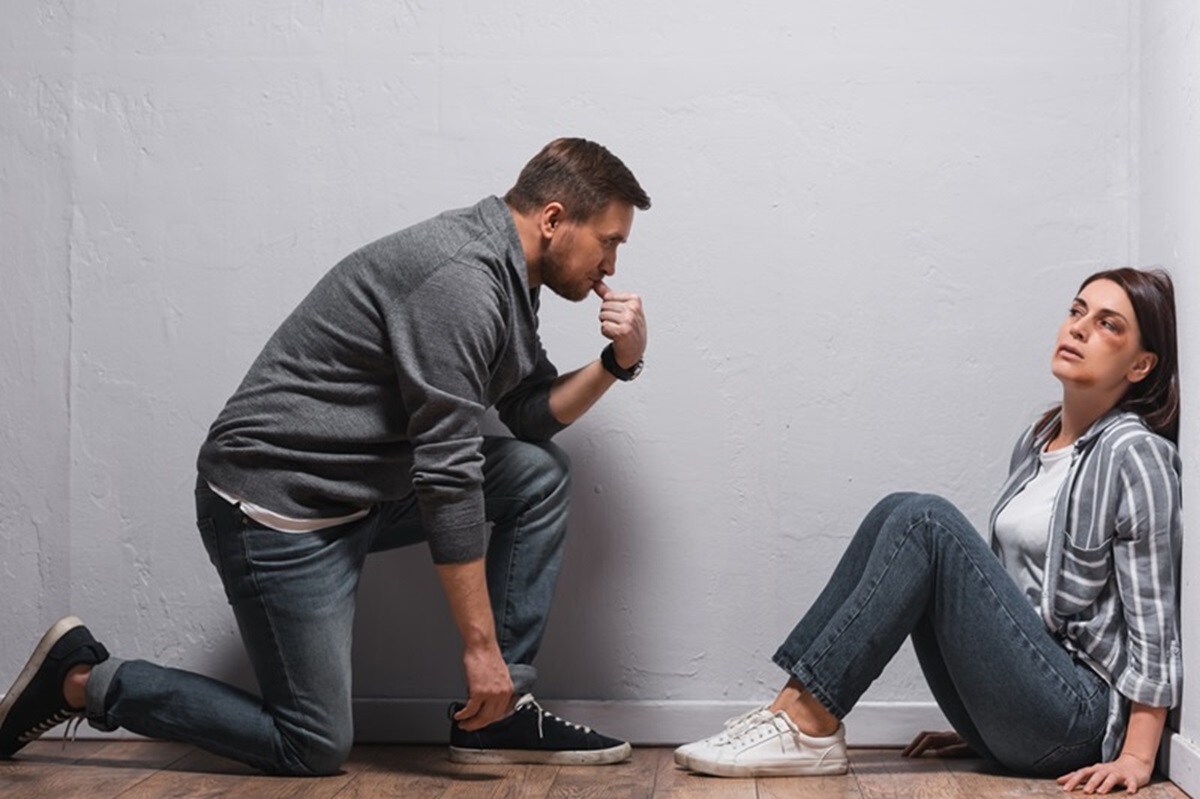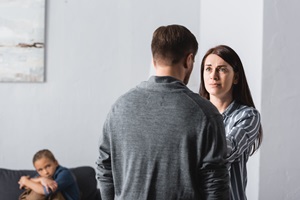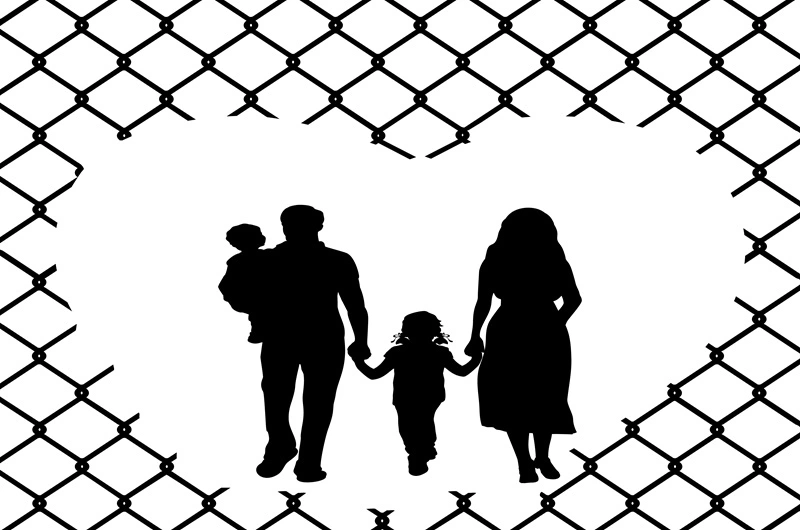VAWA Lawyer Explains Self-Petition Evidence For Abuse Cases
The Violence Against Women Act (VAWA) empowers survivors of domestic abuse by providing a path to safety. It marks the first step toward freedom and legal security for many victims. Obtaining this protection may seem challenging, but with the right support, you can achieve it.
This article outlines the evidence required for you to build a solid case. Learn what proof you can submit to ease the application process and how a VAWA lawyer can guide you toward safety.

VAWA & Its Self-Petition Benefits
In some situations, abusers may use the family-based immigration process to control their noncitizen family members. They may threaten to withhold or cancel a petition to intimidate, manipulate, or keep their victim in fear. This can leave the abused feeling trapped and unsure if they can ever escape or gain legal status.
The Violence Against Women Act, first passed in 1994, changed that dynamic. The program empowers noncitizens abused by their U.S. citizen or lawful permanent resident relatives to self-petition for a Green Card. You can apply for legal status independently, without your abuser’s knowledge or consent.
With self-petitioning as a significant characteristic, VAWA offers eligible individuals a reliable pathway to independence and safety. This protection allows you to remain in the U.S. legally and work toward a stable, abuse-free future.
However, filing a VAWA self-petition involves proving eligibility. You must provide clear and compelling evidence to support your case. Gathering the proper documentation helps prove your qualifications.
Eligibility Requirements For VAWA Self-Petition
To file a VAWA self-petition, you must meet specific eligibility requirements. These conditions establish your relationship with the abuser and prove the sufferings you endured. Here are four key areas you must address.
Qualifying Relationship
You must prove a qualifying relationship with a U.S. citizen or lawful permanent resident. It includes being the spouse, former spouse, intended spouse, child, or parent of the abuser.
If you are a spouse, you may still qualify if the marriage ended within the last two years due to abuse. Your eligibility remains even if your spouse lost citizenship or residency due to domestic violence. You also qualify if you believed your marriage was valid but later learned it was invalid due to your spouse’s bigamy.
If you are the child of an abusive U.S. citizen or permanent resident parent, you qualify. Additionally, parents of an abusive U.S. citizen son or daughter (21 or older) are eligible to apply.
Battery Or Extreme Cruelty
You must prove that your U.S. citizen or permanent resident relative subjected you to battery or extreme cruelty. Abuse under VAWA goes beyond physical violence, as it also covers emotional, psychological, and financial abuse.
If your child experienced the abuse, you may also qualify as the spouse. The law acknowledges that abuse takes many forms, all of which can cause lasting harm.
Residence With Abuser
You need to show that you lived with the abuser during your relationship. While the law sets no specific timeframe for how long you have cohabitated, you must provide evidence that the two of you shared a house. This helps confirm the authenticity of your relationship and the context of the abuse.
Good Moral Character
You must prove that you are a person of good moral character. This means that you have followed the law and acted responsibly. While minor offenses might not harm your case, more serious legal issues could raise concerns to immigration authorities.
Given these robust eligibility requirements, gathering solid evidence becomes a critical step in building your case. Presenting detailed and accurate documentation can significantly boost your petition.
Key Evidence Needed To Establish A Solid Case
Gathering the right evidence is vital to support your VAWA self-petition. The stronger your documentation, the clearer your case will be to the United States Citizenship and Immigration Services (USCIS). You must keep in mind the key categories of evidence you need.
Abuser’s Immigration Status
You must prove that your abuser is a U.S. citizen or permanent resident. Documentation, including their birth certificate, passport, Green Card, and naturalization certificate, works as proof. If you can’t access these directly, other records, like correspondence referencing their status, may help.
Qualifying Relationship To The Abuser
You must prove your relationship with the abuser. Spouses need a marriage certificate, and children or parents should provide birth or adoption records. If your marriage ended because of abuse or your spouse’s death, include divorce or death certificates.
To prove the marriage was entered in good faith, offer evidence like photos, joint financial records, or affidavits from friends or family.
Forms Of Abuse
VAWA covers physical and non-physical abuse. You must document the abuse with police reports, medical records, or protection orders. If unavailable, you can use personal records such as journal entries, texts, or letters about the abuse. Statements from witnesses, such as family members or counselors, are also useful.
Cohabitation
You must show proof of living with the abuser. Acceptable documents include lease agreements, utility bills, or mail sent to both of you at the same address. Photos or witness statements about your living situation can also support the narrative that you shared a home with your abuser.
Good Moral Character
You need to show that you are a person worthy of legal protection. Affidavits from friends, family, or community members can demonstrate your honesty and integrity. In some cases, criminal background checks or official documents may be necessary.
Each piece of evidence you gather brings you closer to safety and independence. Gather as much relevant documentation as possible, but always prioritize your safety. If you’re unsure how to collect this information safely, a skilled attorney can guide you.
Importance Of Legal Assistance For VAWA Petitions
Navigating a self-petition can feel daunting, especially when gathering sensitive evidence. A VAWA immigration lawyer is vital in guiding victims through this process. Legal assistance can help you feel more confident and supported.
Organizing & Presenting Evidence
A legal partner can organize and present your evidence clearly and effectively. The process requires substantial documentation, and it can take time to identify which pieces matter most. By prioritizing and assembling your evidence, your lawyer ensures your case tells a strong, cohesive story.
A VAWA immigration attorney will make sure your evidence aligns with the legal standards. By assembling a cohesive narrative, they strengthen your chances of approval.
Handling Of Confidential Information
Many survivors still live with or near their abuser, making it difficult to collect and store important documents safely. An attorney ensures privacy in handling confidential or sensitive information, protecting you throughout the process.
Additionally, your lawyer can advise you on secure ways to store documents. They suggest keeping digital copies on secure platforms or physical evidence with a trusted person to prevent your abuser from discovering critical information.
Securing Physical & Digital Evidence
A legal representative helps you safely gather both physical and digital evidence. If you need to collect lease agreements, police reports, or other sensitive documents, your local VAWA attorney will guide you in obtaining them without putting yourself at risk.
Your lawyer can suggest secure storage methods for digital evidence like emails or text messages documenting abuse. This tightened security keeps the information safe and helps you avoid additional harm.
Minimizing Risks
An attorney works to minimize the risks involved in gathering necessary evidence. Retrieving documents like police reports or protection orders might raise suspicions, especially if your abuser is still present in your life.
An experienced domestic violence immigration lawyer advises you on the safest ways to access this information, reducing the risk of further abuse. They know how to carefully build your case while keeping your safety as the top priority.
Navigating Missing Or Alternative Evidence
Sometimes, survivors lack traditional forms of evidence, such as police reports or medical records, especially in cases of emotional or financial abuse. In these situations, a VAWA immigration attorney can help build a strong case using alternative forms of proof, like witness statements, photos, or personal records.
Even if you don’t have certain evidence, your lawyer will work with what’s available to create a compelling petition.
Building A Strong, Persuasive Case
An attorney’s knowledge of immigration law is key to crafting a persuasive VAWA petition. They know how to highlight the most compelling parts of your story, ensuring your case meets the legal requirements for approval. They also address any weaknesses in your case, preparing you for potential challenges.
Legal help significantly improves your chances of success, offering you the guidance, protection, and support needed to file a strong petition. And if you ever search for a “VAWA lawyer near me,” make sure you find someone who will treat your case with care and respect.
Lincoln-Goldfinch Law – Abogados de Inmigración Guides You Towards Safety
Lincoln-Goldfinch Law – Abogados de Inmigración guides survivors toward safety with dedication and care. Our compassionate approach to VAWA immigration cases means victims feel supported every step of the way. We aim to make you feel safe and empowered from the initial consultation to gathering evidence and filing your petition.
Our attorneys understand the emotional challenges these cases present. We focus on delivering personalized confidential representation that prioritizes your well-being above all.
Based in Austin, Texas, our dedicated team leverages local knowledge and a strong commitment to the immigrant community. We help you break free from the control of your abuser and move forward with your life and filing your petition. Our attorneys understand the emotional challenges these cases present. We focus on delivering personalized,
The Violence Against Women Act (VAWA) empowers noncitizens abused by U.S. citizens or lawful permanent residents. It allows you to self-petition for legal residency without needing your abuser’s permission. You must meet eligibility requirements and present strong evidence to build a strong case.
Legal assistance plays a key role in securing sensitive documentation and reducing risks. Lincoln-Goldfinch Law – Abogados de Inmigración ensures confidentiality, secures documents, and helps build a compelling case. We guide you through the legal process, providing protection and support to strengthen your chances of success.
Contact A U.S. Immigration Attorney Today!
Categories
How To Find Us
What Our Clients Say
“This Lawfirm is great, very professional and helpful. I love that they are always in communication and always available for when you have questions . 100% recommended by me and my family. Thank you Lincoln-Goldfinch Law – Abogados de Inmigración”




